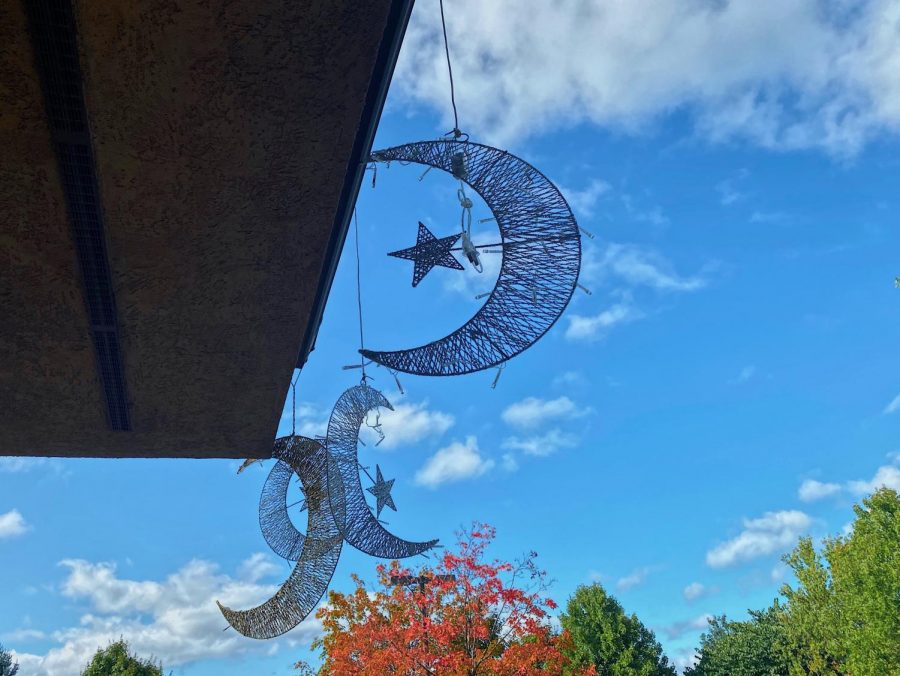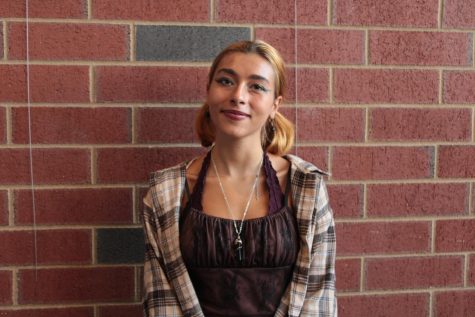The Forgotten Victims of 9/11
Outside the front doors of The Peace Centre Mosque & Islamic Center in State College, PA, taken on Friday, Sept. 11, 2020. The Islamic Society of Central Pennsylvania (ISCP) began in 1982 and provides many services to the Muslim community in Central PA and the surrounding areas.
How do you measure the value of a human life? Does that value change, depending on their face?
For the past 19 years, our country has mourned the 2,996 people who died during the September 11th terrorist attack. We mourn them out of empathy. We mourn them out of value for human life. The phrase “never forget” has been ingrained into our minds. Now arises the question: will we forget the Islamic community who has suffered since? The answer is no. You can’t forget something that you never acknowledged in the first place.
The impact of the September 11th terrorist attacks by Al-Qaeda, an extremist group formed in Pakistan, stretches beyond the twin towers that fell. The perception of Muslims as being terrorists were quickly tied, and the ramifications have been devastating.
As someone who watched the twin towers fall from her own window at work, 9/11 has always been personal for Shaheen Pasha, an assistant professor and co-founder of the Prison Journalism Project at Penn State. She lost friends in the attack, and would have lost her husband if he had not slept in for work that morning. As a Muslim-American Pakistani woman, she also knows personally what it meant for the Islamic community.
“I had all these emotions going on,” said Pasha, recalling September 11th. “I had friends in the building who died. All this stuff was happening, and I remember that as the first tower fell, we were running. One of my coworkers, who I’d been really good friends with, turned to me, and he said, ‘why do your people keep doing this to us?’ It was one of those moments that sort of set the scene for after 9/11.”
According to the FBI, from the year 2000 to 2001, hate crimes against Muslims in the US spiked from 28 to 481 incidents. Just nine days after 9/11, the Bush administration declared its “war on terror,” and war on the Islamic world as a whole, to begin.
The number of Afghans who have been killed through US military invasion since 9/11 is unknown and uncounted. The most conservative estimates place the number far above 100,000. In 2019, The Washington Post released 2,000 pages of confidential government documents that highlighted the misinformation manufactured by three U.S. presidential administrations to justify the wars since. The Afghanistan Papers gave stark insight into the government’s effort to mislead the public into supporting a war they knew had become unwinnable. Data points and death counts had been altered immensely. Death counts, however, could never truly reflect the scope of destroyed communities and livelihoods that of citizens of Afghanistan or Iraq. Islamophobia, which can range from outright disdain to daily microaggressions, also has no number to measure it.
When Pasha was in her sophomore year of a public high school in Brooklyn, she was singled out and threatened with suspension for saying that the Persian Gulf wars were unjustified. She was labeled as “unpatriotic” by her assistant principal. Even today, as a working journalist, she is targeted because of her religion. Every time Pasha writes an article, she expects hate mail, mail that almost always targets her religion. One message she regularly receives is, “I hope your husband beats you, because that’s what Muslim men do.”
After 9/11, she explained, “everything became our fault. If something happens, I have to apologize for it. I have to explain it, or I have to say I don’t condone it, and it’s exhausting.” Pasha, along with many other Muslim-Americans, put up American flags outside their houses after the attack out of fear. The fact that she was born in the U.S. didn’t seem to matter. “My ex went and bought me one,” Pasha said, “and he was like, ‘put the damn thing up on your window, because you need to prove to people that you don’t support what happened.’ I was pissed, but I put it up, because at that point we were also afraid.” These are just some examples of the effects Islamophobia has had upon Muslim-Americans.
“I will always say that there was a lot of humanity and a lot of unity in New York, but the rest of the country especially, was very mean. It was just this overwhelming feeling of, ‘we’re gonna bomb the shit out of Afghanistan.’ And it’s like, why? They have nothing to do with anything,” Pasha said.
Director for the Center for Global Studies and Professor of International Affairs and Comparative Literature at Penn State, Sophia McClennen, specializes in human rights. She came to focus on the rise of Islamophobia in the US since 9/11.
“Human beings have a natural tendency to value the lives of some human beings more than others, and there’s a process for that,” McClennen said. “The problem is that we don’t like to believe that we are discriminatory in the lives we value, but we simply are, and the system that we live in is one that is highly prejudiced against the Islamic world.”
State College, unlike many surrounding towns in Centre County, hosts a diverse set of people due to Penn State University. Muslim members of the community, however, can’t always count on support.
Although McClennen believes Penn State to be committed to supporting a diverse and welcoming community, there’s only so much an administration can do. “In reality, as someone who teaches cross-cultural conflict resolution, that simply can’t be a top-down process.” She explained how oftentimes, tactics used by universities will backfire, heightening conflict instead of reducing it. “People don’t like to be reminded that they don’t know very much about a particular group, and they really don’t like to be reminded that their views of a group may not be based in fact.”
Pasha also explained how Islamophobia is largely prevalent when you haven’t met many Muslims. Rather than task-forces or public statements, some of the most effective ways of bridging the gaps between prejudiced views are to meet people that are different from yourself.
In her own classes, Pasha makes a point of forcing her students to confront their own biases. “Everybody has a bias. I have a bias, you have a bias, and I think trying to pretend that we don’t is the first wrong step we can do,” Pasha said. “It’s about saying, ‘how do I overcome this?’ It’s a process, and it’s a slow process, and it’s a never-ending process. I still have biases that are very much there, but I recognize them, and I try to work through them. ”
From Penn State to State High, the way in which we view the Islamic community is shaped by our environment. The Western education system shows a clear disregard for Muslim lives in selective-teaching and white-washing. The lack of context provided for the terrorist attacks we learn about in school makes one thing clear: a white-washed education is not an education. White school shooters are rarely given the label of “terrorist,” a form of propaganda that directly attempts to tie terrorism with being brown.
“When you’re dealing with that kind of inequity, then you have to understand that it’s just like the structural racism we’re dealing with in Black Lives Matter,” McClennen said. “The system has to create a justification for that kind of massive discrimination.” When teaching her students, she aims to unravel the system, and to show students how that system hurts them as well.
Systems that justify discrimination and unmeasured responses of violence must be taken apart in order to achieve equality. Whether it’s the Western media’s false narratives about Muslims, or the school system that paints them in negative stereotypes, prejudice is all around us. It’s up to each individual person to step back, reassess, and begin to unlearn the propaganda that they’ve absorbed. Without that, it will be impossible to use effective empathy and value all human beings on the same level.
Your donation will support the student journalists of State College Area High School. Your contribution will allow us to purchase equipment and cover our annual website hosting costs.









![The Varsity Boys Volleyball team poses for a photograph after sweeping Altoona 3-0 in the District 6 Championship game. “[Winning the championship] means a lot and shows the work we have put in all year paying off. Still, we aren't celebrating too much as we still have games ahead of us,” junior Derrick Campbell said.](https://lionsdigest1.com/wp-content/uploads/2025/05/EFP_8864-600x399.jpg)


